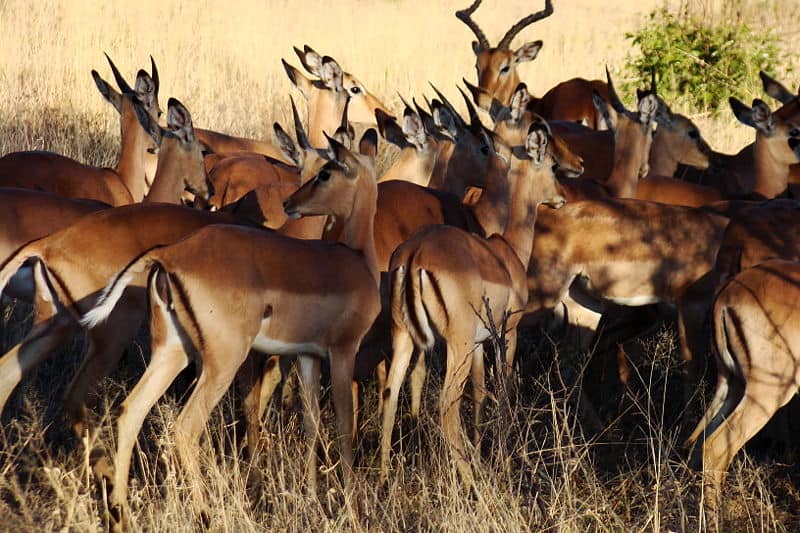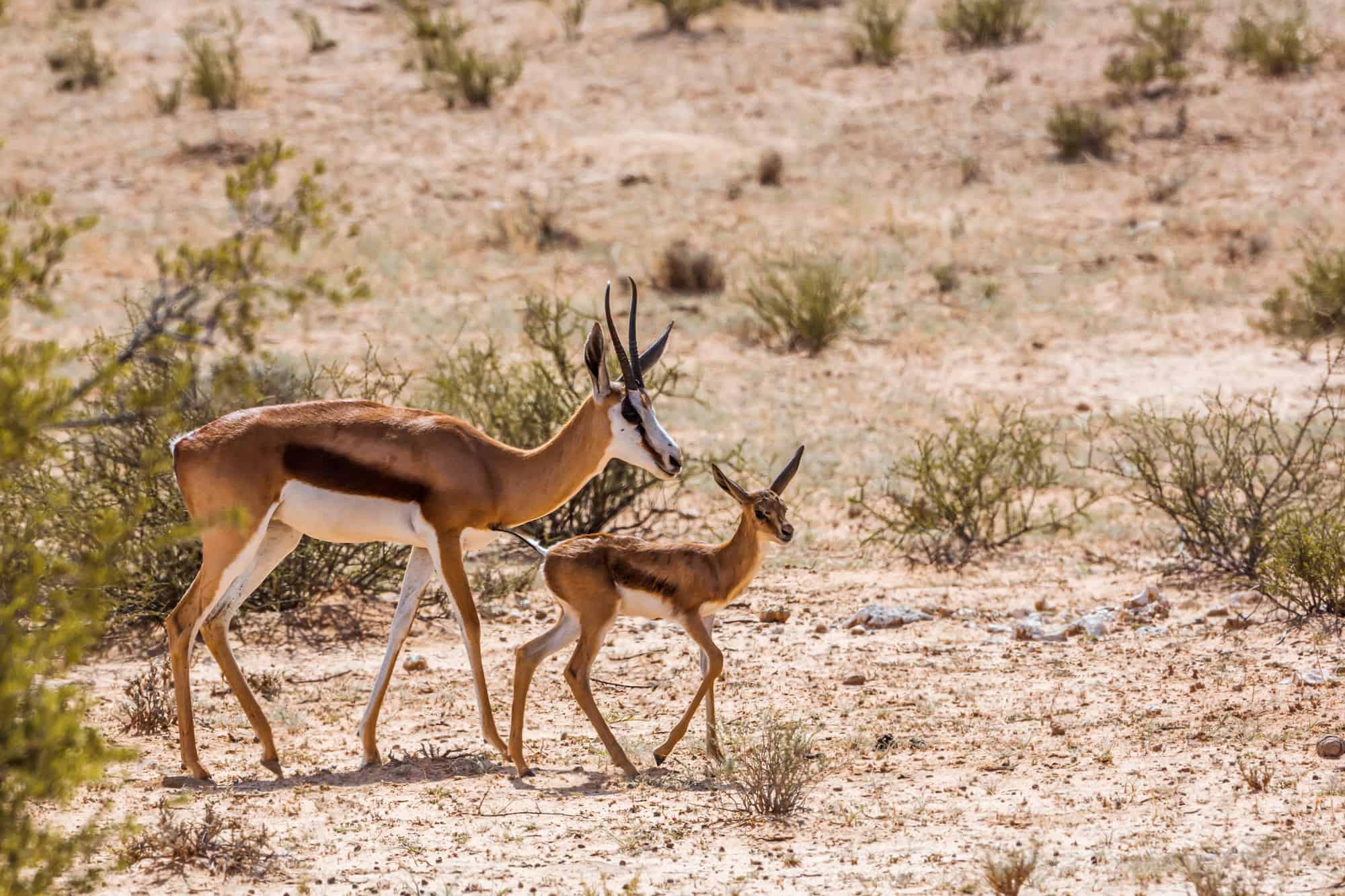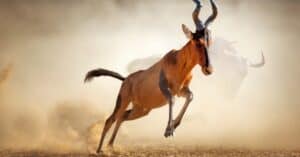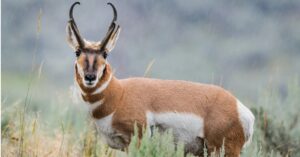Filmed at Crocodile Bridge Safari Lodge in South Africa, this video shows a pride of seven lions stalking impalas just across a river. We watch the lions survey the area before the video cuts. Once it returns, we see the lions split into three groups, each with an impala kill. The onlookers express how much the hunts impressed them and their sadness they missed recording the lions’ skills.
We often think about how unbelievably powerful lions are when we see videos like this. However, the prey animals they seek are pretty neat too. Today, let’s take a look at the incredible impala and it’s look-a-like before watching the video below!
Watch Lions Hunt the Incredible Impala Below!
Are Impala the Same as Springbok?
The short answer is no. While both springbok and impala are antelopes, they differ significantly. Between Africa and Asia, 91 unique antelope species exist! Isn’t that amazing? Both these antelope species are tiny compared to the largest antelopes in the world. They may look similar but they are not the same at all.

Impala live in herds, usually segregated by males and females, unless during breeding season.
©Lukas Kaffer / Creative Commons – Original
Incredible Impala
Also called rooibok, impalas are incredible creatures. Two types of impala exist, living only in Africa (aside from in zoos around the world). The common impala and the black-faced impala both live in the grasslands. These medium-sized antelopes weigh up to 168 pounds and eat a variety of grasses and plants. They jump up to 33 feet in a single bound and nearly 10 feet into the air!
Only the males (bucks) grow horns which measure up to 36 inches long. That’s just as long as the whole animal is tall! The females (ewes) give birth to a single baby (fawn) that she keeps away from the herd, hidden, for the first few weeks. Then, the mother and the fawn will join the nursery within the herd where they will try to protect the babies together.
This species lives mostly in southern and eastern Africa. The incredible impala forms three different types of herds – female herds, dominant male herds, and bachelor herds. Scientists say they are the only antelope species to segregate themselves this way.

Unlike impala, both male and female springbok grow horns.
©PACO COMO/Shutterstock.com
Super Springbok
Springbok are smaller than our incredible impalas. They typically grow to only about 90–95 pounds and the males’ horns are much shorter than those of impala. Female springbok also grow horns. Unlike impala that mostly graze grasses, springbok stand on their hind legs to reach the soft, new leaves of trees and shrubs. Ewes also keep their fawns hidden longer than impalas do, which some say is interesting considering impalas tend to rely on cover more heavily than springbok. These antelope inhabit Western and Southern Africa in mixed-sex herds.
Springbok do not jump as high or as far as impala. They do have a vertical jump height of nearly seven feet, though! Amazingly, springbok are able to survive long periods without water due to the type of plants they consume. The succulents and new leaves they eat contain the water they need to survive! During the rainy season, they eat grasses and drink water when available.
Final Thoughts on the Incredible Impala
They may be small, but they’re also mighty. Impalas and their look-a-likes (springbok) display some incredible features that make them unique. Next time you see an amazing predator video, consider checking out the prey they are hunting, too!
The photo featured at the top of this post is © Kyle Meerholz - Public Domain
Thank you for reading! Have some feedback for us? Contact the AZ Animals editorial team.







